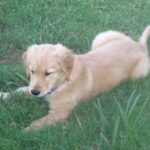“My dog is as dear to me as a child!” How often have we known people who say that, or act that way even if they won’t admit it. And many of us would admit to feeling that way ourselves.
So how about all those slobbery kisses? Should we be concerned when the dog shares our pillow? How bad is it when the kids and the dogs are sleeping together in a pile on the floor? After all, dogs have to be carrying all kinds of germs in their fur and in their mouths. More than half of the dog owners in the United States admit to close physical contact with their pets, such as letting the dogs lick their faces, or sleeping with them.
Of course, there is that old saying, “a dog’s mouth is cleaner than a human’s mouth.” Is that true? And there is more to a dog than its mouth.
New (released January 2009) research from Kansas State University shows that dog owners who enjoy close physical contact and bonding activities with their animals are no more likely to carry transmitted bacteria than those who keep their pets at a distance. The study will be published in the American Journal of Veterinary Research.
Some known diseases, and about 75% of newly emerging ones, can be passed between species. However, many diseases are species specific. For example, dogs rarely get colds when their humans are fighting off some new rhinovirus, and canine distemper is not passed to humans (although it is related to the measles virus).
Dr. Kate Stenske, who conducted the Kansas study, looked at strains of Escherichia coli bacteria. Although some aberrant types of E. coli are often in the news for causing serious illnesses and death, E. coli is mostly benign. It is so common, and so ubiquitous, that it is often used as a measure of general bacterial populations. And it exists naturally in the intestines of both dogs and humans. The problems arise when it develops genes that make it resistant to normal antibiotics.
Stenske took fecal samples from both dog owners and their dogs, and compared the E. coli strains. By comparing the DNA she learned that about 10 percent of the bacteria strains were commonly shared. All showed some percentage of resistant bacteria, but the people actually had a higher level of the altered bacteria. What this implies is that people are more likely to pass problem bacteria to their pets, rather than the other way around. The finding is not surprising since humans take many more antibiotics than their pets which can stimulate bacteria to mutate, forming resistant strains.
There was no correlation with bonding behaviors (licking and bed sharing) and increased presence of germs in humans.
And what about that idea that a dog’s mouth is cleaner than a human’s? This theory may have arisen from flawed interpretation of bite treatments. Human bites have historically shown a greater rate of infection than animal bites. But this data mostly came from bites to the hands of the victims. It is speculated that people did not seek treatment for such bites until problems had already arisen.
Some doctors also speculate that the often observed healing which occurs when dogs lick their wounds, or the wounds of other animals or even humans, comes only from the exfoliation which is a result of the constant abrasion of continued licking. One man in Singapore has even reported that spots of psoriasis on his body healed when the dog licked them, while unlicked spots did not heal.
Two award winning high school science projects, both in Alaska but not connected, actually studied the effects of dog saliva on bacteria growth. In both cases the saliva showed a slight ability to inhibit the growth of bacteria. The report of these projects includes a reference to a 1990 University of California study which supposedly showed that dog saliva inhibited the growth of both E. coli and Streptococcus canis. The study concluded that when a mother dog licks her nipples she is helping to prevent infection to her nursing pups.
This does not mean that common-sense hygiene should be ignored. A dog’s mouth is going to contain bacteria from where it’s tongue has most recently been. Dogs do get into nasty, rotten garbage (and think that they have just found the greatest treasure on earth when they do), they clean themselves with their tongues, and love to roll in dead fish or roadkill. So, use your head. Washing hands before eating or preparing food, no matter whether you have been petting the dog or playing with the baby should be just routine.
The benefits of a loving relationship with a dog far outweigh the risks of infection with serious diseases.
Sources:
http://www.eurekalert.org/pub_releases/2009-01/ksu-dom012709.php
http://www.flakehq.com/archives/0104c.htm
http://www.gi.alaska.edu/ScienceForum/ASF12/1234.html



